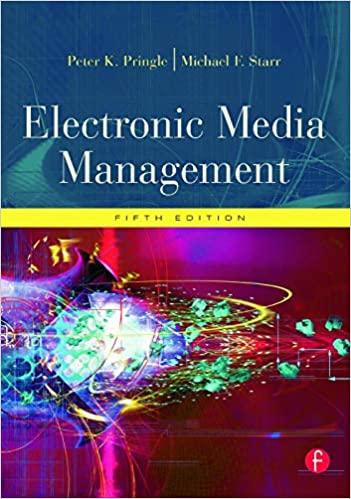Question
SECTION A- MULTIPLE CHOICE QUESTIONS [10 MARKS] Answer ALL questions. Each question carries ONE (1) mark. Choose the best alternative answer. 1. Creating a sense
SECTION A- MULTIPLE CHOICE QUESTIONS [10 MARKS]
Answer ALL questions. Each question carries ONE (1) mark.
Choose the best alternative answer.
1. Creating a sense of urgency as one step in stages of change call for management to ______________
A. Explain to stakeholders by providing a compelling vision for change.
B. Develop a course of action for implementing change.
C. Convince the members of an organization of the need for change.
D. Create a clear vision for effective perception of the change ideas among employees.
2. The following are imperious factors in driving an organizational change except___________
A. Financial resources
B. Time
C. Incentives
D. Operational policies
3. The following are output measures of innovation except ________________
A. Tangibles
B. Intellectual property
C. Percentage of sales
D. Use of technology
4. Theories of entrepreneurship are categorized into four (4), namely _____________
A. Economic, psychological, sociological and cultural
B. Economic, psychological, sociological and technological
C. Technological, political, economic, psychological
D. Economic, physiological, sociological, cultural
5. ____________ leader is more appropriate in situations that require drastic changes
A. Transformational
B. Transactional
C. Charismatic
D. Visionary
6. Decision making under uncertainties characterize _______________
A. Intrapreneurship
B. Innovation
C. Entrepreneurship
D. Venturing
7. The following factors makes it possible to form a new venture except __________
A. Government
B. Finances
C. Technology
D. Individual background
8. Which of the following are the external drivers capable of triggering change?
A. Process improvement, customer requirements and market competition
B. Improving operational efficiency, process improvement and customer requirements
C. Customer requirements, demands for other stakeholders, process improvement.
D. Customer requirements, demand from other stakeholders, market competition
9. The ability to perceive something not actually visible describes a _____________
A. Strategy
B. Mission
C. Goal
D. Vision
10. The ___________ facilitates the exchange of information to increase the chances of a successful change.
A. Parallel approach
B. Bottom-up approach.
C. Descriptive approach
D. Prescriptive approach
SECTION B: SHORT ANSWER QUESTIONS [50 MARKS]
Answer only four questions in this section.
1 (a)Explain the concept of entrepreneurial leadership. (4 marks)
(b). Are male leaders more effective than female leaders? Justify your answer with literature sources and examples. (6 marks)
2. Transformational leadership involves an exceptional form of influence that moves followers to accomplish more than what is usually expected of them'. Explain any five weaknesses of transformational leadership. (10 Marks)
3(a). Describe one innovation that is in line with your organization using three characteristics of innovation. (6 marks)
(b). Explain any two sources of creativity. (4 marks)
4. Leaders are like athletes: Some are born with natural ability, whereas others develop their ability through determination and hard work, and some born without tremendous natural ability do, through hard work, determination, and continuous improvement, perform beyond apparent potential. Discuss the above statement using trait theory of leadership. (10 marks)
5. (a). Distinguish between continuous and dynamic continuous evolutionary innovations. (4 marks)
(b). Explain any four sources of creativity. (6 marks)
SECTION C: ESSAY TYPE QUESTIONS [50 MARKS
Question 2 (25 marks)
(a). Using change that was recently implemented in the organization of your choice, discuss reasons that might lead to resistance to change. For each reason suggest remedial actions. (10 marks)
(b). Discuss five ways in which a leader can enhance his or her leadership skills through language. (15 marks)
Question 3 (25 Marks)
"Change cannot be mandated or forced. It has many constituents and these constituents' count. Change managers need to ask themselves some difficult questions before they set out to "shake things up." And they must listen to the answers". Looking at the above, if you are a sensitive change manager, what are some of the questions you must consider and its explanation before you set out to make things better. (25 Marks)
Step by Step Solution
There are 3 Steps involved in it
Step: 1

Get Instant Access to Expert-Tailored Solutions
See step-by-step solutions with expert insights and AI powered tools for academic success
Step: 2

Step: 3

Ace Your Homework with AI
Get the answers you need in no time with our AI-driven, step-by-step assistance
Get Started


